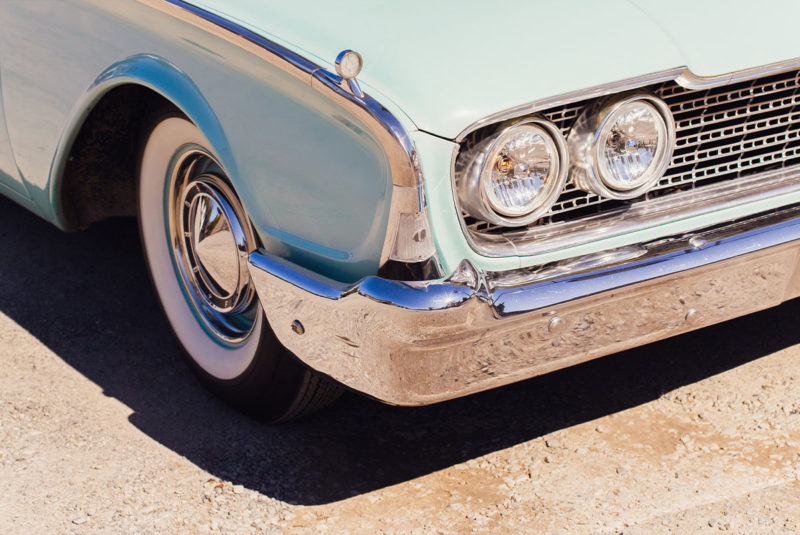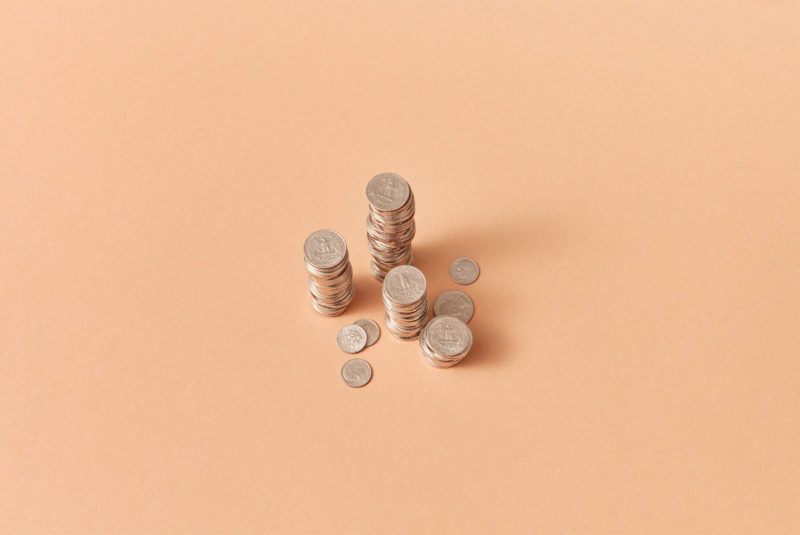You’re running a 5,000-meter repayment race. You trip and suddenly start to feel yourself falling. Defaulting on a loan can feel a lot like this. One day you’re running along, making regular payments on your loan, and the next day you’re stumbling over late or missed payments. Unfortunately, no one is immune to the occasional stumble. It can happen to even the most prepared, responsible borrowers.
To get you upright and back on track, we’ll cover what happens when you default, the consequences of a default, how you get into default – and, most importantly – how you can recover from it.
What Does It Mean To Default on a Loan?
Unforeseen circumstances – like losing a job, an illness or other emergencies – can cause financial hardship and make it hard to repay a loan. Defaults on a loan happen when you don’t make your scheduled payments for a certain length of time. If your loan goes into default, it can be sent to a debt collection agency that will contact you to pay the unpaid funds.
Some lenders allow you to miss one payment before they begin the process of collecting what you owe. The period after missing a payment and your loan going into default is called the delinquency period. During this time, the lender will give you a chance to resolve the issue or catch up on your payments before taking further action.
Different types of accounts have different default timelines, and they can vary by lender, too:
| Type of Loan | Time to Default After Last Payment |
| Mortgage Loan | 30 – 60 days (foreclosure at 120 days)[1] |
| Student Loan | 270 days (federal loan)[2] and 90 days (private loan) |
| Auto Loan | 30 days |
| Personal Loan | 30 days |
| Business Loan | 30 days |
| Credit Card | 180 days[3] |
What Are the Consequences of Defaulting on a Loan?
In general, defaulting on a loan can trigger consequences like losing assets, affecting your ability to get future financing and negatively impacting your credit, including:
- Loss of money
- Tax refunds withheld to pay for defaulted loans
- Wages garnished
- Possible lawsuit(s)
- Negative information on your credit reports and a drop in your credit scores
Each type of debt can also have its own specific set of consequences besides the ones we’ve covered.
Mortgage loan
Defaulting on your mortgage can be triggered by:
- Not paying your monthly mortgage payments
- Not paying your property taxes
- Transferring the home’s title without the lender’s approval
- Severely damaging the property
- Not paying your homeowners insurance
When you stop making payments, your lender will contact you to pay your outstanding balance. If you can’t pay it, your lender can accelerate your debt and demand you make the outstanding payments on the spot. If you still can’t pay, the lender can begin the foreclosure process approximately 120 days past your first missed payment.
Unfortunately, one of the biggest consequences of defaulting on your mortgage is that you may lose your home.
Student loan
Defaulting on student loans can come with several consequences that will depend on whether the loan is a federal loan or a private loan.
- Federal student loan: Your loan becomes delinquent the first day after your missed payment. At this point, you can either make arrangements for a new repayment plan or apply for a deferment or forbearance. If you’re more than 90 days late on your last payment, it will be reported to the credit bureaus. After 270 days, your loan goes into default.[2]
- Private student loan: The default process for private student loans works similarly to federal student loans, but your loan will go into default much faster – usually around 90 days.
Like mortgage lenders, a student loan servicer can accelerate your debt, prompting you to pay the outstanding balance immediately. Defaulting on your loan may make you ineligible for deferment or forbearance, repayment plan options or even jeopardize your ability to qualify for future federal student aid.
Your school may withhold your transcript, which could hurt your chances of transferring schools, getting into a new program or getting a job.
Auto loan
One of the biggest consequences of defaulting on your car loan is losing your car. And because cars depreciate (lose their value) as soon as they are sold, the lender or dealer that repossesses and sells your car may not make enough to cover what you owe. If this happens, you will be responsible for the remaining loan balance.
Because lenders are aware of car depreciation, taking yours may be a last resort. Many lenders and dealers may prefer to work out a new loan repayment plan instead.
Personal loan
If you have an unsecured personal loan, you risk litigation over your outstanding balance. A judgment could trigger wage garnishment or liens (a right to possess a property until a debt is resolved) being placed on your property. If you have a secured personal loan, whatever asset you supplied as collateral will be seized.
Business loan
Business loans operate like personal loans. Some of the major consequences of defaulting on business loans are that your business assets, like revenue, equipment or inventory, may be seized, a lien may be placed on your revenue or you may be forced to file for bankruptcy. This could ultimately mean losing your business.
Credit card
Most creditors will start the collections process if they haven’t received a payment from you in 180 days. Just like with unsecured loans, you may be taken to court for what you owe. The creditor will likely deactivate your card so you can no longer make any charges. And if they close your account, that can harm your credit report.
How Does Defaulting on a Loan Affect Your Credit?
Defaulting will hurt your credit scores and credit history. They’re like the scratches you get on your hands when you catch yourself before you hit the ground – they hurt and can stick around for a while.
Derogatory remarks, like defaults, collections, late payments and bankruptcies, can stay on your credit report for 7 – 10 years.[4] Just one late payment can knock points off your credit scores, and it only gets worse the more late or missed payments you have.
Some other ways a loan default can affect your credit include:
- Credit limitations: Credit card issuers may routinely check your credit report to make sure that it’s still a good idea to let you borrow money. A default on your credit report can cause them to decrease your credit limit or even close your account, which can sink your credit scores and shrink your credit limit.
- Future financing struggles: Lower credit scores can make it harder to qualify for financing. And if you do qualify, you’ll likely have to deal with higher interest rates on loans and credit accounts.
- Job hunt woes: Some employers will check your credit report to get an idea of how you manage debt. What they see might be taken as an indicator of how responsible you might be on the job. Negative information, like a loan default, may impact your ability to get the job.
How Can You Get Out of a Loan Default?
Loan default is a big stumble – but it’s not a fall. You can recover. In fact, you can even take steps to avoid defaulting on a loan. But how you bounce back from a loan in default will depend on the loan, the lender and your financial situation.
Getting rid of a default may include debt consolidation, negotiating new loan terms or applying for loan forbearance. It’s very important to communicate with your lender when you are experiencing financial hardship. Reaching out sooner is best because you can work on a plan to get back on track and potentially avoid a loan default.
Getting Out of (and Potentially Avoiding) Loan Default
Multiple debts are combined into one debt account with one monthly payment. This may help you get a lower interest rate than the rates on your loans and a lower monthly payment. But it usually extends your repayment period.
You get a new loan that replaces your old one. The new loan will likely have a lower interest rate and, therefore, lower monthly payments.
You can negotiate with your lender to modify your loan terms by either lowering your interest rate or extending your repayment period. Either scenario can make repaying your loan more manageable.
We mentioned this briefly with student loans, but you may be able to get a mortgage forbearance. Your lender agrees not to foreclose on your home and pauses or reduces your payments for a certain amount of time. After the time is up, you must resume making regular payments and pay your past-due balance.
Federal student loan rehabilitation allows a borrower to make smaller payments for 10 months to bring a loan out of default and get the default removed from their credit report. Some federal student loans can be forgiven if you meet certain requirements.
If you’re overwhelmed by your options or are in a lot of debt, get in touch with a financial advisor. You may also want to contact a bankruptcy attorney. They’ll be able to tell you if you’d benefit from the loan forgiveness provided by filing for bankruptcy. But remember, a bankruptcy can negatively affect your credit scores and reports.
How Do You Improve Your Credit Scores After a Default?
If you’ve defaulted on your loan and your credit scores have taken a hit, you may have limited options, but there are a few steps you can take to rebuild your credit and improve your scores. Just remember that building credit takes time and effort.
Credit builder loan
With a credit builder loan, you can make monthly payments to a lender until your loan is paid off. And you receive the money at the end of the loan term. To build your credit, you’ll need to make consistent, on-time payments.
Secured credit card
If you don’t have a credit card, opening a credit card account can diversify your credit mix (which can slightly boost your scores). If your credit scores are low, you may only qualify for a secured credit card. With a secured credit card, you’ll provide a security deposit to a lender that acts as collateral and usually establishes your credit limit. As long as the credit card issuer reports nothing but on-time payment activity to the credit bureaus, you’ll build your credit.
Authorized user
You can become an authorized user on someone else’s credit card. Just make sure the credit card issuer reports to the credit bureaus. Similar to a secured credit card, this option can help diversify your credit mix and help build your credit.
No matter which credit building option you choose, focus on making on-time payments and lowering your credit utilization (the amount of credit you are using compared to the total amount of credit you have). Your payment history and credit utilization are weighed heavily in credit scoring models.
Dust Yourself Off and Get Back On Track
While you may not finish the repayment race as you once envisioned it, there are steps you can take to successfully recover from default and build your credit back up.
Talk to your lender, pick your best option, dust yourself off and get back on (financial) track.
The Short Version
- Loan defaults happen when you don’t make your scheduled payments for a certain length of time
- Defaulting on a loan can trigger consequences like losing assets, affecting your ability to get future financing and negatively impacting your credit
- Getting rid of a default may include debt consolidation, negotiating new loan terms or applying for loan forbearance
Consumer Financial Protection Bureau. “Foreclosure Avoidance.” Retrieved May 2022 from https://files.consumerfinance.gov/f/201312_cfpb_foreclosure-avoidance-procedures.pdf
Federal Student Aid. “Student Loan Delinquency and Default.” Retrieved May 2022 from https://studentaid.gov/manage-loans/default
Experian™. “What Happens if I Stop Paying My Credit Cards?” Retrieved May 2022 fromhttps://www.experian.com/blogs/ask-experian/what-happens-if-i-stop-paying-my-credit-cards/
Equifax®. “How Long Does Information Stay on My Equifax Credit Report?” Retrieved May 2022 from https://www.equifax.com/personal/education/credit/report/how-long-does-information-stay-on-credit-report/https://www.equifax.com/personal/education/credit/report/how-long-does-information-stay-on-credit-report/




